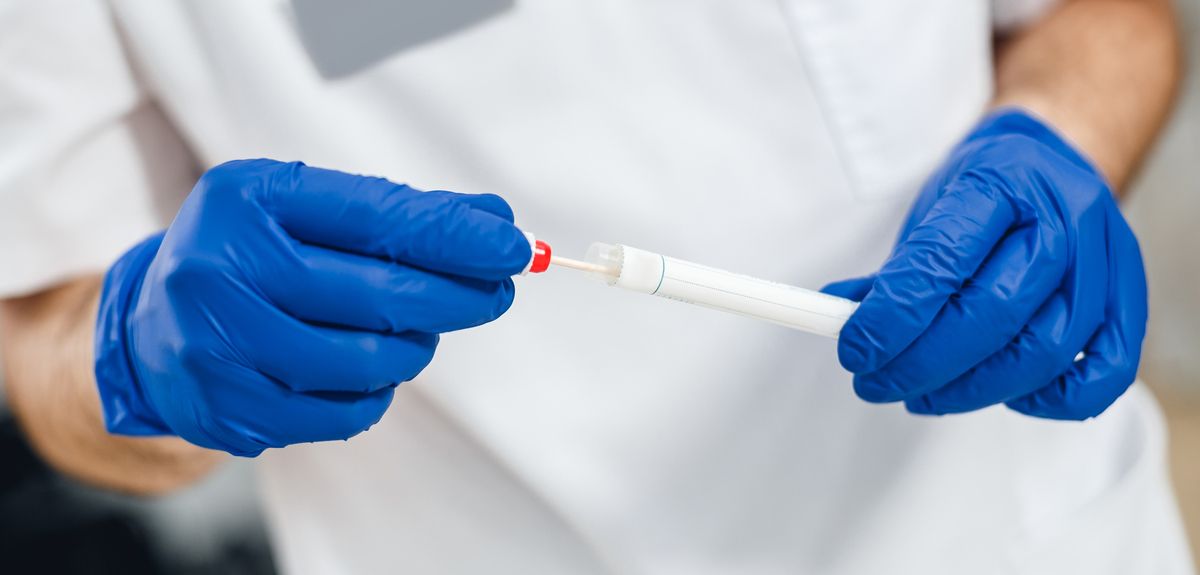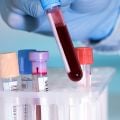
New Oxford co-led platform to accelerate COVID-19 tests into real-world use
Testing for coronavirus infection could become quicker, more convenient and more accurate, following the launch of a multicentre national programme of research that will evaluate how new diagnostic tests perform in hospitals, general practices and care homes.
The COVID-19 National DiagnOstic Research and Evaluation Platform (CONDOR) will create a single national route for evaluating new diagnostic tests in hospitals and in community healthcare settings. The £1.3 million research programme will bringing together experts who are highly experienced in evaluating diagnostic tests and generating the robust evidence required for a test to be used in the NHS.
Co-primary investigator Professor Gail Hayward, Associate Professor at the University of Oxford’s Nuffield Department of Primary Care Health Sciences, and Deputy Director of the NIHR Community Healthcare MedTech and IVD Co-operative, said:
‘Right now, there’s a critical gap in how we road-test new diagnostics for COVID-19. By robustly evaluating these diagnostics in health and care settings, the CONDOR programme will help the government and clinicians to understand the real-world accuracy of these tests in patients presenting with COVID-19 symptoms in the NHS.’
Jointly led by the University of Oxford and the Manchester University NHS Foundation Trust, the programme will put the many tests developed by the life sciences industry to either detect current coronavirus infection or to find out if someone has previously been infected through their paces in hospital, general practice, and care home environments.
Professor Hayward continues:
‘While a new diagnostic test might work well in a lab under controlled conditions, there are many different factors that could make it less accurate when you take that test out of the lab and into the real world.’
‘These include the range of ways that COVID-19 can present itself, from non-symptomatic carriers to post-symptomatic people who have recovered, the range of other illnesses people might have and the challenges of performing tests in a busy clinical environment.’
The research will assess multiple diagnostic tests at once at sites across the country and can be adapted to add in new tests as they become available, and this study is one of a number of COVID-19 studies that have been given urgent public health research status by the Department of Health and Social Care, to expedite its delivery in the health and care system.
At present, the main test currently used to detect coronavirus infection (reverse transcription polymerase chain reaction [RT-PCR]) often involves sending samples away to laboratories, which can take up to 72 hours to provide results.
Lord Bethell, Minister for Innovation at the Department of Health and Social Care, adds:
‘I’m delighted we’re committing £1.3 million to this brilliant new national research programme to evaluate how new diagnostic tests perform in health and social care settings, so we can track levels of infection and immunity across the country and help keep people safe.’
 Oxford researchers develop blood test to enable early detection of multiple cancers
Oxford researchers develop blood test to enable early detection of multiple cancers
 Professor James Binney awarded Royal Astronomical Society’s Gold Medal
Professor James Binney awarded Royal Astronomical Society’s Gold Medal
 Logged tropical forests are still valuable for biodiversity, study finds
Logged tropical forests are still valuable for biodiversity, study finds
 Pioneering new mathematical model could help protect privacy and ensure safer use of AI
Pioneering new mathematical model could help protect privacy and ensure safer use of AI
 New study reveals link between head injuries and viruses in Alzheimer's Disease
New study reveals link between head injuries and viruses in Alzheimer's Disease